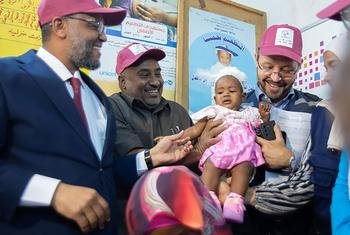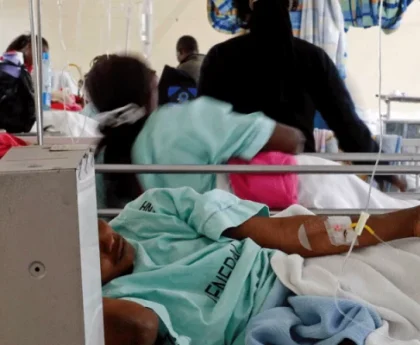
Sudan has launched its first malaria vaccination campaign amid 18 months of civil conflict, aiming to protect thousands of children from the deadly disease.
On Monday, The Federal Ministry of Health, in partnership with the UN Children’s Fund (UNICEF), the World Health Organization (WHO) and Gavi, the Vaccine Alliance, rolled out vaccines for Sudan’s war-battered population, making it the first country in WHO’s Eastern Mediterranean Region to benefit.
Malaria remains a leading cause of childhood mortality in Sudan, which has one of the highest malaria rates in the region. The disease claimed an estimated 7,900 lives in Sudan in 2023, though the actual toll may be higher due to ongoing conflict between rival militaries.
The launch follows the arrival of the first consignment of 186,000 doses to Sudan in October and the campaign will begin across 15 health facilities in Gedaref and the Blue Nile states, benefitting more than 148,000 children under 12 months-old. In 2025 and 2026, the vaccine will be introduced in a further 129 localities.
Lifesaving tool
“The opportunity offered by the introduction of the vaccine into the national immunisation programme is enormous,” said Sheldon Yett, UNICEF Representative to Sudan.
“This vaccine is a critical new tool in our child mortality fighting toolkit,” he continued. Sudan’s conflict has made access to healthcare challenging.
An unprecedented 11 million people have been internally displaced and more than 70 per cent of hospitals in conflict zones are now non-operational. While vaccination rates had reached 85 per cent before the war, they have now plummeted to about 50 per cent.
Low immunisation coverage and frequent disease outbreaks, such as cholera, malaria, measles, and polio are exposing millions of unvaccinated children to fatal yet preventable diseases.
Strategic plan
The Federal Ministry of Health has developed extensive plans to ensure a successful rollout, including training healthcare workers, engaging communities, and bolstering cold chain capacity to safeguard vaccine quality.
Dr. Shible Sahbani, WHO Representative to Sudan added that the “WHO continues to advocate for comprehensive malaria interventions, integrating the vaccine with other preventive measures,” emphasising a multi-faceted approach.
“The introduction of the malaria vaccine not only represents a critical step forward in protecting the lives of countless children but also symbolises hope for a healthier future amidst adversity,” Anne Cronin stated, Senior Country Manager for Sudan at Gavi.





